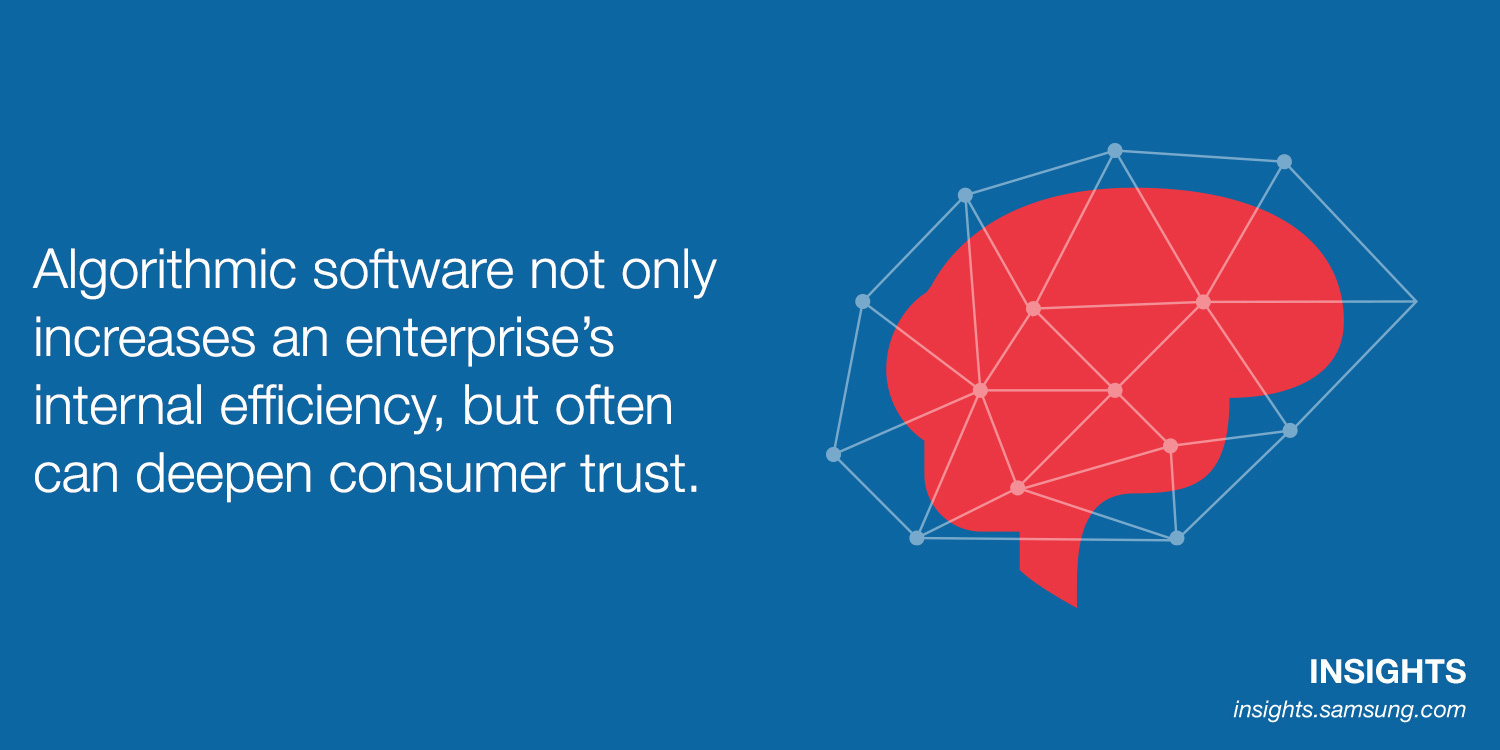Algorithms have become a ubiquitous and essential part of business operations. Uber uses algorithms to determine customer demand and set pricing accordingly, while Amazon and Netflix use algorithms to nudge their customers to purchase a product or stream a new video they might like. And these examples are just the tip of the iceberg.
Interestingly, the use of these algorithms can not only increase an enterprise’s internal efficiency, but often algorithmic software or machine learning algorithms can also be used to deepen consumer loyalty and trust. Viewers on Netflix trust algorithms to deliver content they’ll enjoy, just as customers trust Amazon to offer only useful products for purchase.
The fact is that algorithms today are offering unprecedented levels of productivity and intelligence to businesses. Those that don’t get on board soon risk becoming metaphorical typewriters in the age of computer processors.
Collaborative Engagement Will Drive Innovation
The best ideas and uses for algorithmic software and machine learning won’t be created in a vacuum. Algorithmic platforms that allow developers to streamline the effort to build and deploy machine learning algorithmic models will be key in helping to improve and automate more processes.
One example of this type of collaborative effort is Samsung’s Simband. The Simband is an algorithmic platform that allows companies that create wearables to improve on their devices and data processing algorithms. Through providing developers with access to and use of Simband’s sensors, the platform helps ensure accurate data collection, which can then be used to create better apps and wearable devices.
Algorithmic Advances via Apps
Mobile apps provide an extensive opportunity to collect data, but this data is only useful with algorithmic software to process and make sense of it. For example, the healthcare industry uses apps and accompanying algorithms to help physicians make treatment decisions. Retailers, on the other hand, use apps and algorithms to continually innovate and A/B test how to further personalize the customer experience. DocuSign has said that its customers have seen a 93 percent reduction in the time it takes to close a contract thanks to how machine learning and algorithms are being used in its apps, according to an article in GeekWire.

Recent technology advances, such as a new chip design announced by MIT that’s 10 times as efficient as a mobile GPU, are making mobile devices and apps even more integral to machine learning. With the improved hardware, mobile devices will be able to “run powerful artificial intelligence algorithms locally, rather than uploading data to the internet for processing.” This advancement in mobile device hardware will bring deeper and more integrated machine learning algorithms to mobile devices — an exciting prospect.
Where Algorithmic Advances Are Headed
Most enterprises are barely scratching the surface of the usefulness and strategic importance of machine learning algorithms. Algorithmic software is still in its infancy, but it has the potential (already partially fulfilled) to completely change business processes by not only understanding and improving work operations better than the human mind can, but by making processes more efficient, effective and agile.
Open data can do everything from helping retailers understand purchasing trends to enabling them to make relevant suggestions for customers. Find out here about the implications of Amazon’s DSSTNE switching to open source software.







